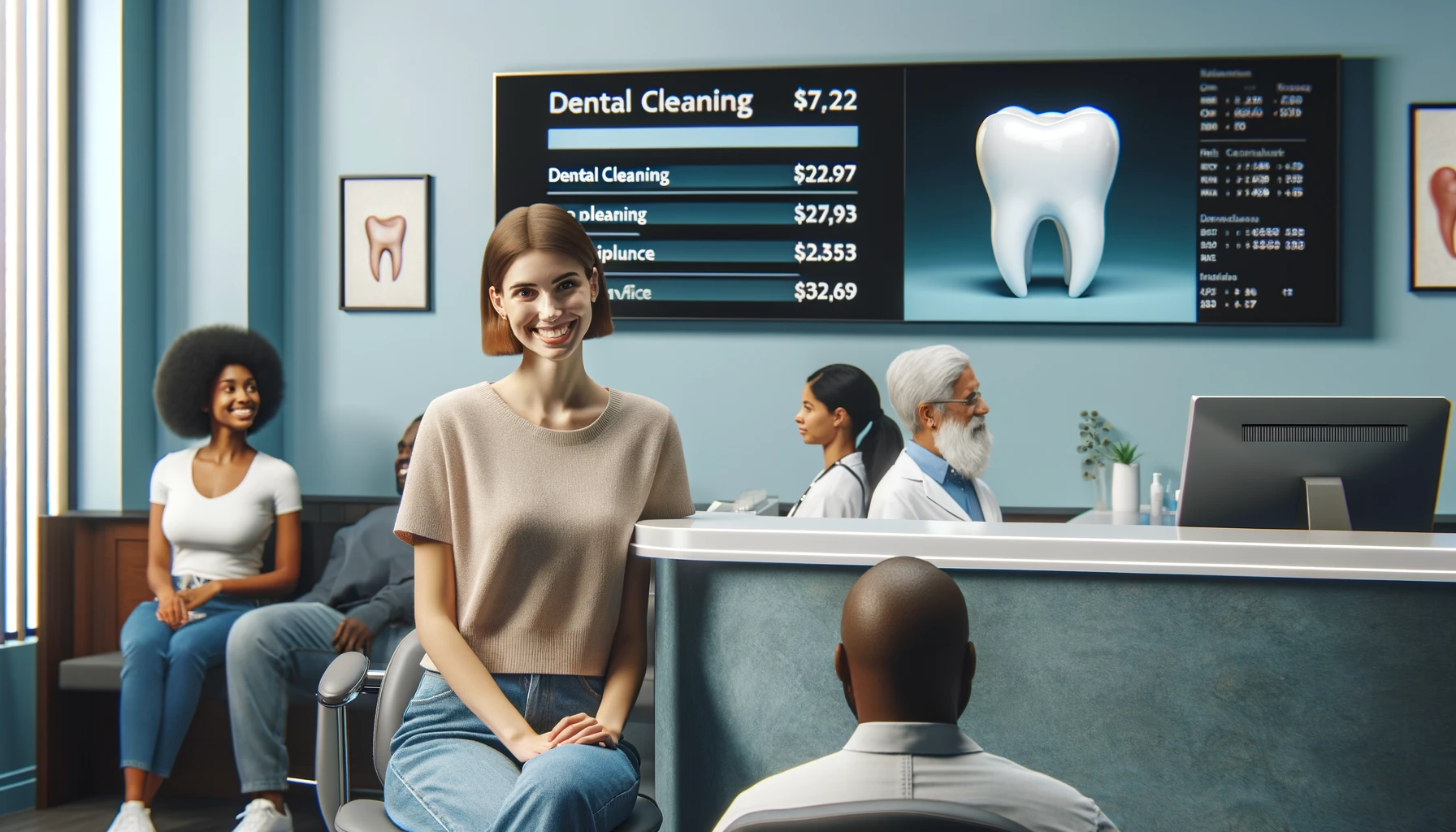Are you considering a career that allows you to make a significant impact on people’s health and well-being? If so, becoming a dental hygienist might be the perfect fit for you. Dental hygienists play a crucial role in promoting oral health, educating patients, and working alongside dentists to provide comprehensive care. This guide will walk you through the essential steps to becoming a dental hygienist, from educational requirements to licensure and career advancement opportunities.
Understanding the Role of a Dental Hygienist
Dental hygienists are healthcare professionals who specialize in preventive oral health care. They work closely with dentists to provide essential services that help maintain patients’ oral hygiene and overall health. Their responsibilities include:
- Performing dental cleanings and examinations
- Taking and developing dental X-rays
- Applying preventive materials such as sealants and fluorides
- Educating patients about proper oral hygiene practices
- Assessing patients’ oral health and documenting findings
The demand for dental hygienists is on the rise, with job opportunities projected to grow significantly in the coming years. According to the U.S. Bureau of Labor Statistics, employment of dental hygienists is expected to grow by 11% from 2020 to 2030, which is faster than the average for all occupations.
Step 1: Obtain Your High School Diploma or Equivalent
The journey to becoming a dental hygienist begins with obtaining a high school diploma or an equivalent credential, such as a GED. This foundational step is crucial as it qualifies you for entry into dental hygiene programs.
Focus on Relevant Courses
While in high school, it’s beneficial to focus on courses that will prepare you for the science-heavy curriculum in dental hygiene school:
- Biology: Understanding human anatomy and physiology is essential for dental hygiene.
- Chemistry: Knowledge of chemical interactions helps in understanding dental materials and medications.
- Mathematics: Basic math skills are necessary for calculating dosages and measurements.
Additional Preparatory Steps
Consider volunteering or shadowing professionals in dental settings to gain insight into the field. This experience can help solidify your decision and enhance your application when applying for programs.
Step 2: Complete an Accredited Dental Hygiene Program
To become a licensed dental hygienist, you must graduate from an accredited dental hygiene program. These programs are typically offered at community colleges, technical schools, and universities.
Types of Dental Hygiene Programs
| Program Type | Duration | Key Features |
|---|---|---|
| Associate Degree in Dental Hygiene | 2-3 years | Most common path; includes clinical experience |
| Bachelor’s Degree in Dental Hygiene | 4 years | Broader scope; prepares for advanced roles |
Associate Degree in Dental Hygiene
The associate degree is the most common path for aspiring dental hygienists. This program usually takes about two to three years to complete and includes both classroom instruction and hands-on clinical practice.
Key subjects covered may include:
- Anatomy and physiology
- Periodontology (study of gum diseases)
- Radiography (taking X-rays)
- Nutrition related to oral health
Bachelor’s Degree in Dental Hygiene
While less common, pursuing a bachelor’s degree can open doors to advanced roles in research, education, or public health. These programs typically take four years and provide a more extensive education covering additional topics such as:
- Advanced clinical techniques
- Public health principles
- Management practices in healthcare settings
Admission Requirements
Admission into dental hygiene programs can be competitive. Here are common requirements:
- High school diploma or GED
- Minimum GPA (often around 2.5 or higher)
- Completion of prerequisite courses (e.g., biology, chemistry)
- Entrance exams (some programs may require standardized tests)
- Personal statement or interview
Make sure to research specific programs as requirements can vary by institution.
Step 3: Pass the National Board Dental Hygiene Examination (NBDHE)
After completing your dental hygiene program, you must pass the National Board Dental Hygiene Examination (NBDHE). This comprehensive exam assesses your knowledge across several domains critical for practice.
Exam Overview
The NBDHE consists of:
- 350 multiple-choice questions
- An estimated duration of 8 hours
The exam covers key areas such as:
- Anatomical sciences
- Oral health management
- Patient care strategies
Preparation Tips
To prepare effectively for the NBDHE:
- Review course materials thoroughly.
- Take practice exams available through various online resources.
- Join study groups with peers from your program.
- Utilize resources from professional organizations like the American Dental Hygienists’ Association (ADHA).
Achieving a passing score on this examination is mandatory for licensure across all states.
Step 4: Obtain State Licensure
In addition to passing the NBDHE, you will need to fulfill specific licensure requirements set by your state’s dental board.
State-Specific Requirements
The licensing process generally involves:
- Passing a state-specific or regional clinical exam that evaluates your practical skills.
- Completing any additional requirements such as:
- Jurisprudence exam (testing knowledge of laws governing dental hygiene)
- Background checks
- CPR certification
Navigating Licensure Procedures
Contact your state dental board for detailed information regarding:
- Application processes
- Required documentation
- Renewal procedures for maintaining your license
Once all requirements are met, you will be designated as a licensed registered dental hygienist (RDH) and can begin practicing in your state.
Step 5: Explore Specialization and Advancement Opportunities
As a licensed dental hygienist, numerous career opportunities await you across various settings such as private practices, hospitals, schools, and public health clinics.
Potential Specializations
With experience and further education, you can pursue advanced roles and specializations including:
| Specialization | Description |
|---|---|
| Periodontal Therapist | Focuses on treating patients with advanced gum disease |
| Pediatric Dental Hygienist | Specializes in caring for children’s oral health needs |
| Dental Hygiene Educator | Teaches future dental hygienists in academic settings |
| Public Health Dental Hygienist | Promotes oral health within community settings |
| Researcher | Conducts studies that advance knowledge in dental hygiene |
Continuing Education and Professional Development
To further your career prospects:
- Consider pursuing a master’s degree in dental hygiene or related fields such as public health or education.
- Join professional organizations like ADHA for networking opportunities.
- Attend conferences and workshops to stay updated on industry trends.
A Rewarding Career Awaits You
Becoming a dental hygienist is not just about earning a paycheck; it’s about making a meaningful difference in people’s lives through improved oral health care.
Job Outlook and Salary Expectations
According to the U.S. Bureau of Labor Statistics:
- Employment of dental hygienists is projected to grow by 11% from 2020 to 2030.
This growth translates into excellent job prospects across various healthcare settings.
Salary Insights
As of 2021, the median annual wage for dental hygienists was approximately $77,810. Salaries can vary based on factors such as location, type of practice, level of experience, and specialization.
The Impact You Can Make
As a dental hygienist, you’ll have the satisfaction of helping patients achieve optimal oral health while educating them on preventive care practices that can lead to healthier lives overall.
Frequently Asked Questions (FAQs)
What qualities make a good dental hygienist?
A successful dental hygienist typically possesses strong communication skills, attention to detail, empathy towards patients, and excellent manual dexterity.
How long does it take to become a licensed dental hygienist?
The time frame varies depending on whether you pursue an associate or bachelor’s degree but generally ranges from two to four years after high school.
Can I work part-time as a dental hygienist?
Yes! Many dental hygienists work part-time or have flexible schedules that allow them to balance work with other commitments.
Are there online programs available?
Yes! Some accredited institutions offer online courses combined with clinical training opportunities that allow flexibility while pursuing your degree.
Conclusion
Embarking on the journey to become a dental hygienist is an exciting opportunity that promises both personal fulfillment and professional growth. By following this step-by-step guide—starting with obtaining your high school diploma, completing an accredited program, passing necessary examinations, obtaining state licensure, and exploring specialization options—you can build a rewarding career dedicated to improving patients’ lives through better oral health.
If you’re ready to take the next step toward this fulfilling career path, start researching accredited dental hygiene programs near you today! With dedication and passion for lifelong learning, you can create a positive impact on countless lives through your work as a dental hygienist.














